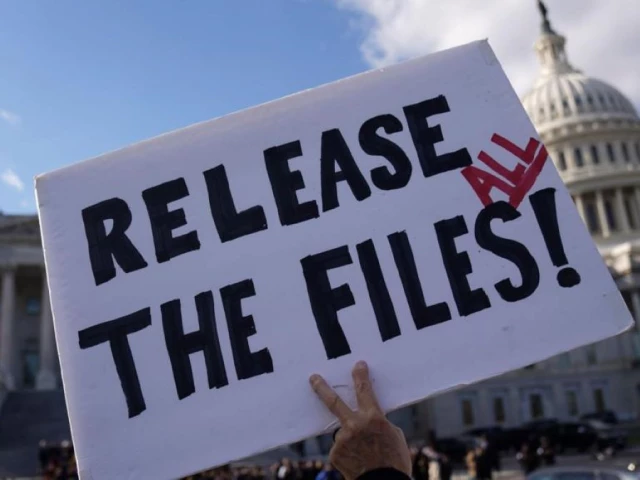Trump signs bill forcing DOJ to release Jeffrey Epstein files
Epstein Files Act requires DOJ to publish all unclassified records tied to the Epstein investigation

US President Donald Trump said on Truth Social on Wednesday night that he had just signed a bill that requires the Department of Justice (DOJ) to release files related to late financier Jeffrey Epstein.
Trump's statement came just one day after the US House voted overwhelmingly to approve the bill. On Tuesday night, just a few hours after the House passage, the upper chamber unanimously agreed to immediately pass the bill once it was sent from the House. The Senate passed the bill on Wednesday.
The bill was introduced in the House in mid-July, but Republican leaders, including House Speaker Mike Johnson, delayed the process for months.
Read More: House set to force release of Epstein files after trump ends opposition
Democratic Representative Ro Khanna and Republican Representative Thomas Massie have led a discharge petition, which would force a vote once the petition reaches the 218-signature threshold. On Nov. 12 -- the day the House reconvened for the first time after a 54-day recess -- the petition secured the final signature it needed.
The bill, known as the Epstein Files Transparency Act, requires the DOJ to publish all unclassified records, documents, communications and investigative materials in its possession related to the investigation and prosecution of Epstein.
This includes materials that relate to Ghislaine Maxwell, who conspired with Epstein to sexually exploit underage girls, flight logs and travel records, and individuals named or referenced in connection with the investigation and prosecution of Epstein.
The DOJ may withhold certain information, such as personally identifiable information of victims and materials that could jeopardize an active federal investigation.
Epstein had close connections with many prominent American political and business figures. After being arrested on sexual offense charges, he died in prison in August 2019, in what was officially ruled a suicide.
During his 2024 presidential campaign, Trump promised that, if elected, he would release documents related to the Epstein case. On July 7, however, the Justice Department and the Federal Bureau of Investigation issued a memorandum stating that there is no "incriminating client list," no evidence that Epstein's death was a murder, and that no further Epstein-related documents would be released.
Also Read: Lawrence Summers, former US Treasury secretary, steps away from Harvard amid Epstein fallout
Last week, Democrats on the House Oversight Committee released Epstein-related documents involving Trump. Republicans on the committee then released a far larger tranche of files as a countermeasure, accusing the Democrats of cherry-picking.
Trump then directed the DOJ to investigate high-profile Democrats connected to Epstein, including former President Bill Clinton, former Treasury Secretary Larry Summers and LinkedIn co-founder Reid Hoffman, who is a major Democratic donor. US media view the move as an attempt to counter the impact of the Epstein-related documents involving Trump that Democrats recently released.
"Democrats have used the 'Epstein' issue, which affects them far more than the Republican Party, in order to try and distract from our AMAZING Victories," Trump wrote in a post on Truth Social on Wednesday night as he announced he had signed the bill.
On Tuesday night, Senate Democratic leader Chuck Schumer lashed out at Trump on the issue, saying that the president "has tried to cover up for Jeffrey Epstein long enough."
"This isn't about Democrats versus Republicans or about Congress versus the president," Schumer said. "This is about giving the American people the transparency they've been crying for. This is about holding accountable all the people in Jeffrey Epstein's circle who raped, groomed, targeted, and enabled the abuse of hundreds of girls for years and years."



















COMMENTS
Comments are moderated and generally will be posted if they are on-topic and not abusive.
For more information, please see our Comments FAQ